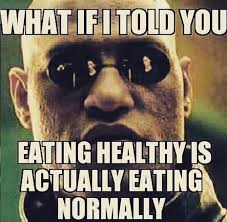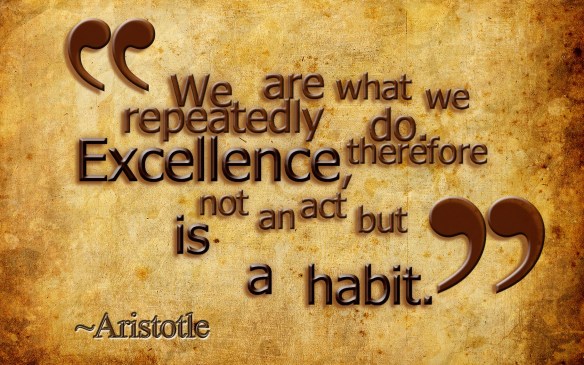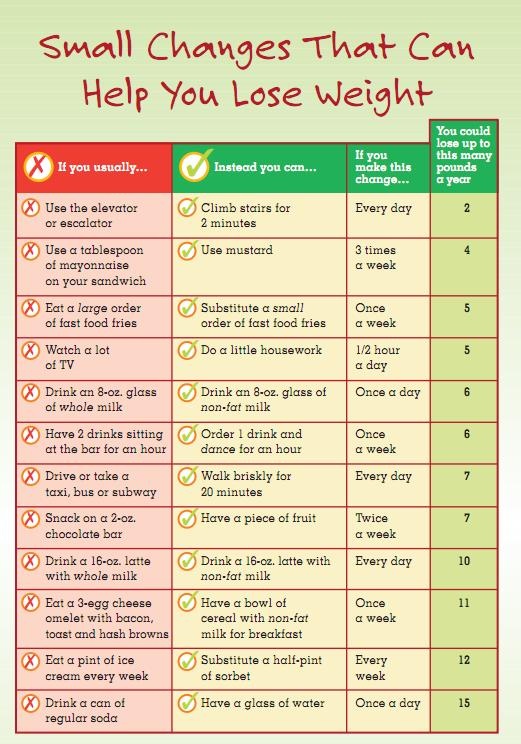Settle in, folks. Maybe grab a green tea. This here’s a long one.
When I started my Precision Nutrition coaching course, I never expected it to teach me so many life lessons in addition to the nitty-gritty nutritional information.
Furthermore, the folks at PN have a really clever way of putting into useful mantras/slogans the habits that I find myself coaching clients about on the regs – helpful tidbits like “eat to 80% full,” “aim for a little more, a little better,” and my personal fave, “don’t bother mowing the lawn if the house is on fire” (referring to, for example, those folks that INSIST on getting a Diet Coke alongside their 1000-calorie fast food McDonald’s meal).

Spoiler alert: it’s not a huge deal.
Today’s lesson made the shocking assertion that discipline is a myth – and furthermore, that health-industry keywords like willpower, motivation, and inspiration are all pretty much myths, too. The basic idea is this: it’s not some holy-grail epic opening of the heavens that drives us to make healthy changes in our lives, it’s simply the repetitive act of small habits and better choices that add up to great things.
It reminded me of an article I’ve brought up time and again since first being exposed to it in graduate school in 2007 called The Mundanity of Excellence. To summarise Dr. Daniel Chambliss:
“Excellence is mundane. Excellence is accomplished through the doing of actions, ordinary in themselves, performed consistently and carefully, habitualized, compounded together, added up over time. The action, in itself, is nothing special; the care and consistency with which it is made is.”
Wow. Just wow. Go ahead, read it again. I’ll be here.

I admit that I am a “doer” almost to a fault; I am a big fan of favouring the “done” rather than the “perfect,” which sometimes results in less-than-ideal outcomes – but more often results in people getting what they need at the time in which they need it, which is a cornerstone of success in my business.
That said, taking action is the most important first step to the idea we formerly knew as “motivation,” and taking that action consistently becomes the pattern we used to talk about as “discipline.”
The early-morning slog to the gym in your dirty old sneakers; the game-time decision to order the salad instead of the sandwich at the local deli; the choice to shut off the Netflix at 10pm so you can get a full night’s sleep – these are the actions, these are the patterns, these are the little things that make big changes to your life.

Cheat sheet – print it out and rock on!
And so I turn it back to Precision for some little nuggets that can help you move from the ideal world of myths and grandeur to the real-life world of actions and habits (all their words, not mine, by the way):
- There is no such thing as discipline. Rather, ask yourself: What do you really love? Because you are the result of what you love most. You either love and cherish six-pack abs more than potato chips, or you love potato chips more than washboard abs. It’s as simple as that. Don’t beat yourself up – you’re allowed to love what you love.
- Make truly self-loving choices that lead to increased strength of body and mind. When people comment on your results and say things like, “Wow you have a lot of discipline”, answer, “No, I just make the best choices for myself.”
- The best defence is a good offence. Nutrition is something within your control and you should take responsibility for this. Every day you wake up and decide what it’s going to be: a day of struggling or a day of rising to the occasion.
- Be motivated by the knowledge that you will never regret doing the right thing, even if it hurts to do it. But you will regret doing nothing. Keep a “daily wins” log. Over time, you have “real evidence” that you are progressing… and more importantly, have the capacity to progress further.
- Understand that sh
*t will happen. There will be “down” days. On those days, become a minimalist. Find the smallest thing you can do and do it. If all you ended up doing was your “smallest” thing, then you still can take solace that you did something. If you did more, bonus. - Change your focus, change your environment, change your attitude. If you’ve been physique focused, find a performance or health goal. Find something that inspires you and put your attention to that. Introduce something new and fun to your “plan”. Decide what you really want and decide if you’re willing to do what it takes to get there.
- Motivation is crap. Exercise and eating well is ambivalent. Some days you feel like doing it, so you do; other days you don’t feel like doing it, so you don’t. Eventually you must learn to dissociate feelings from actions. You must go to the gym, or eat your vegetables, even if you’re downright screaming “AW HELL NO!!” Regardless of how you initially feel about it, starting the right action makes it easy to finish it. And once you overrule your “hell no”, it gets easier to do it the next time.
This year, I’m not really setting resolutions; I don’t really have different goals from this time last year. But I am determined to stay committed, act with dedication and consistency, and stay focused on my long-term plans for my life – and I hope you will, too.
Do you have big goals for 2018? What are your plans to take it to the next level?

Great post. So much common sense wisdom. Makes me think of the old Nike T-shirt I wore when I first started weight training more than 30 years ago. It simply said, “Just Do It.”
Chris
LikeLike
And ain’t it the truth, Chris? The biggest stumbling block to most of these health-related goals is just GETTING STARTED.
LikeLiked by 1 person